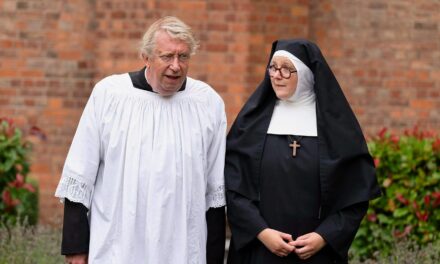I wish I could enjoy contemporary Christian music, the so-called ‘Praise and Worship’ hymns. But when I listen to most of it, I can’t help feeling annoyed. I can’t help feeling like I’m listening to a cliché.
I hear this complaint a lot from music lovers, Christian and non-Christian. Their disappointment leads them to disregard any songs that mention Jesus. It’s not Christian music alone that relies on cliché — cliché inhabits pop music and country music as well. Just as “praise” can grate on our ears, so can the words, “women,” “trucks,” and “booty.”
But the subject matters are not the problem. Christianity itself is not a cliché; neither is romance, love, or the pain of separation and failure (the terrain of pop and country music.) The issue lies in the way in which these subject matters are explored. No two people will ever genuinely experience the same thing the same way and so, because of that phenomenon, so many artists can gaze at the same blue sky, the same womanly figure, the same Nativity scene, and create beauty out of their gazing, without requiring the use of cliché– without requiring a prepackaged imitation of other art. These are true artists, who have learned their trade, the craft of making beautiful things, by following what the philosopher Jacques Maritain called “creative intuition,” and trusting it to guide their work.
But artists, sadly, sometimes lose touch with the intuition that prompted their work. Creating a completely new work of art can be a scary and unpredictable process and it can make the artist feel very vulnerable. Clichés offer comfort and a sense of control. The result is usually recognizable: predictability and a feeling of inauthenticity.
However, we often put up with the clichés we meet, we suppress the cringe, if the clichés offers other benefits, such as some empty-headed fun or singing and dancing to songs we all know are rather mindless — Miley Cyrus, KeSha, etc.
Other times we allow clichés to confirm our beliefs and create an emotional connection with them — such is the case with Christian music. Its clichés provide camaraderie, safety, powerful emotions, and the requisite moral lessons. But with our Christian faith, we ought not to accept the clichés, or the kitsch as its sometimes called, because a lack of authenticity in our music can infect our faith and fail to glorify God.
Art matters. Art can change a heart. It can reform a soul in a moment with a glance or a few notes. The beauty of art is one of the basic paths to discovery of God. And so as Christians, who claim a connection to God, the First Artist, we have an obligation to demand an art that glorifies Him without reliance on artistic short-cuts that provide what Flannery O’Connor called “instant uplift” but lack the inwardness of genuine authenticity.
In order to be authentic, the Christian artists must commit themselves to being artists before they are “Christian artists.” This may seem paradoxical, but every artist must learn the trade and the tradition before creating anything of value. As Christian artists they will learn to employ their expertise based upon the spark, the creative intuition, that arises from gazing upon God’s creation. That intuition does not need to be made into something “Christian.”
The Christian poet, for example, does not need to insure his verses sound like apologetics in rhyme, so to speak. The poetry should be poetry first and Christian second, if that’s what the poet has made. The artist must be willing to write about heartbreak or Mary or the fact of sin, doubt, fear, or anger, trusting that that his skill and the source of his inspiration will help him create something beautiful.
The artist must be willing to sing about Jesus, or never sing about Jesus, trusting that as long as he is close to Jesus and honest about his own ability and inspiration, the art will be beautiful and the art will be good. The art may convert, not because it is Christian art, but because it is authentic art and so its beauty will touch the souls of those who behold it.















Elizabeth, you should try Kevin Heider “Salzburg Revolution”, and Vince Schuerman “Army of Me”. These artist are young and their music is definitely not cliche’. I have both of these CD’s in my car at all times.
The Christian music that speaks to me is what deals with the real life of everyone. Music that deals with the actual struggle of Christians can be healing, for once we understand that we are all on the same road, with problems that are alike, we won’t feel isolated.
Christianity is not an escape from life but diving into the experience and allow Christ heart to inflame our own. I am of course speaking of my own struggles, failures, and getting up again. I doubt I will ever get it. So I love music that kind of states that reality with hope and trust in God blended in.